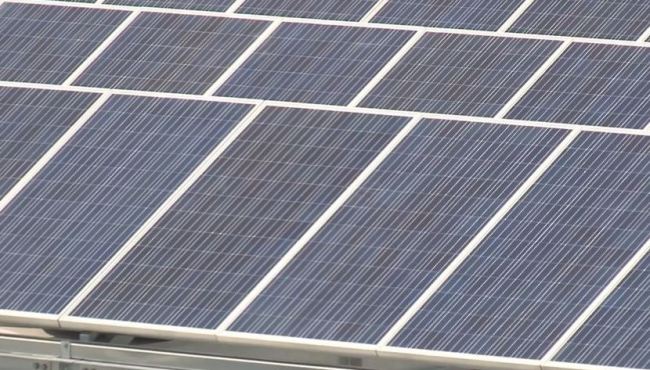Korea behind in energy conversion technology but needs to keep present policy: report
By YonhapPublished : Dec. 20, 2018 - 16:03
South Korea is a laggard in energy conversion technology and deregulation but needs to stay on its current policy course to realize the desired economic effect, a local report argued Thursday.
The Hyundai Research Institute gave South Korea 79 points overall in its ability to transform energy. The score is lower than the United States' 98 points, the European Union's 97 points and Japan's 93. The assessments were based on data and research from the Korea Institute of S&T Evaluation and Planning.
The Hyundai Research Institute gave South Korea 79 points overall in its ability to transform energy. The score is lower than the United States' 98 points, the European Union's 97 points and Japan's 93. The assessments were based on data and research from the Korea Institute of S&T Evaluation and Planning.

The report cited a slew of barriers holding the country back as it seeks global competitiveness in renewable energy.
For one, local companies do not have a strong standing in the domestic energy market, the report said. It drew a comparison with China, where firms have full government backing in solar power, and Europe, where companies are strong in the wind power sector.
In South Korea, the monopolistic power supply arrangements get in the way of energy trading and development of new services, the HRI report said, and deregulation in related fields has been too slow.
At the end of last year, the government announced its "Renewable Energy 3020 Plan," which would raise the ratio of renewable energy supply to 20 percent of total power output by the year 2030.
Despite the challenges, the government needs to pursue its energy policy because the economic impact from energy conversion is not small.
An investment of 100 trillion won ($88.77 billion) in the 3020 plan as pledged would create jobs for 1.04 million people, and raising the ratio of renewable energy to 20 percent would induce production worth 183 trillion won in related industries plus another 70 trillion won in added value, according to the think tank's findings.
"We need to increase research and development investment in order to elevate our competitiveness in energy conversion," Chang Woo-seok, the author of the report, said. "We have to actively revise the unreasonable restrictions on renewable energy through social consensus." (Yonhap)




![[Graphic News] Beer the most favored alcoholic drink by Koreans](http://res.heraldm.com/phpwas/restmb_idxmake.php?idx=644&simg=/content/image/2024/05/09/20240509050765_0.gif&u=)









![[Weekender] Pet food makers bet big on ‘recession-free’ pet food market](http://res.heraldm.com/phpwas/restmb_idxmake.php?idx=652&simg=/content/image/2024/05/10/20240510050754_0.jpg&u=20240511163252)




![[What to play] Musical tributes to family in the month of family](http://res.heraldm.com/phpwas/restmb_idxmake.php?idx=642&simg=/content/image/2024/05/09/20240509050795_0.jpg&u=)